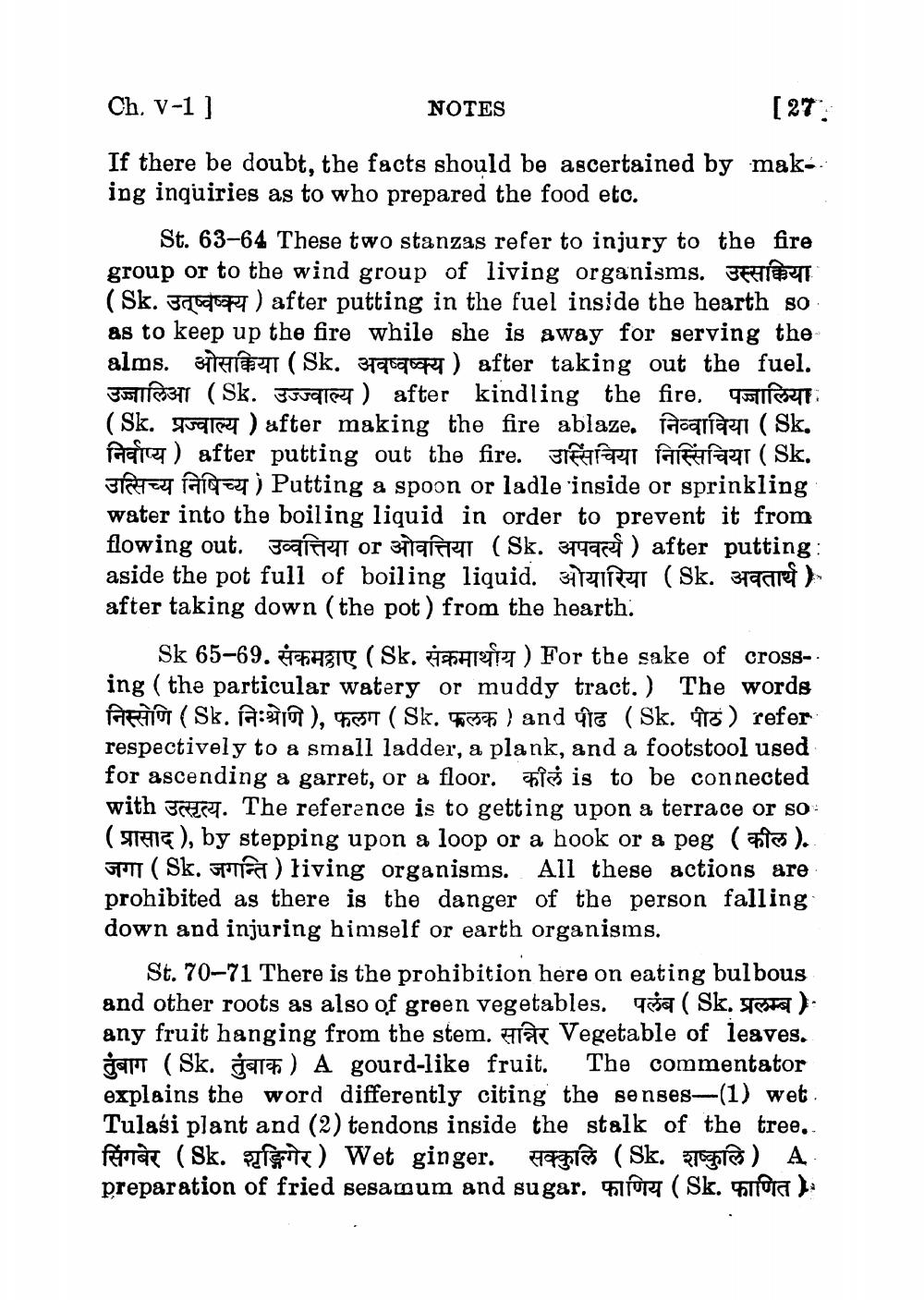________________
Ch. V-1 ] NOTES
[ 27 If there be doubt, the facts should be ascertained by mak.. ing inquiries as to who prepared the food etc.
St. 63–64 These two stanzas refer to injury to the fire group or to the wind group of living organisms. BFINI (Sk. 396957 ) after putting in the fuel inside the hearth so as to keep up the fire while she is away for serving the alms. Tre ( Sk. 3taqon) after taking out the fuel. उज्जालिआ (Sk. उज्ज्वाल्य) after kindling the fire, पजालिया (Sk. Toale) after making the fire ablaze. Pacquiaeri ( Sk. निर्वाप्य ) after putting out the fire. उस्सिंचिया निस्सिंचिया (Sk.
ratey faicea) Putting a spoon or ladle inside or sprinkling water into the boiling liquid in order to prevent it from flowing out. उव्वत्तिया or ओवत्तिया (Sk. अपवर्त्य ) after putting : aside the pot full of boiling liquid. ओयारिया (Sk. अवतार्थ) after taking down (the pot) from the hearth.
Sk 65-69. #FHEIT ( Sk. HEDHT2TT) For the sake of crossing ( the particular watery or muddy tract.) The words FIRAT (Sk. la:PIÑ ), 40559T (Sk. 405557 ) and qiz (Sk. 4) refer respectively to a small ladder, a plank, and a footstool used for ascending a garret, or a floor. Als is to be connected with Beet. The reference is to getting upon a terrace or so (SIC), by stepping upon a loop or a book or a peg ( pics ). TI ( Sk. ) living organisms. All these actions are prohibited as there is the danger of the person falling down and injuring himself or earth organisms.
St. 70–71 There is the prohibition here on eating bulbous and other roots as also of green vegetables. पलंब (Sk. प्रलम्ब) any fruit hanging from the stem. Alat Vegetable of leaves. gan (Sk. jala) A gourd-like fruit. The commentator explains the word differently citing the senses—(1) wet. Tulasi plant and (2) tendons inside the stalk of the tree.. सिंगबेर (Sk. शृङ्गिगेर) Wet ginger. सक्कुलि (Sk. शष्कुलि) A preparation of fried sesamum and sugar. फाणिय (Sk. फाणित)




